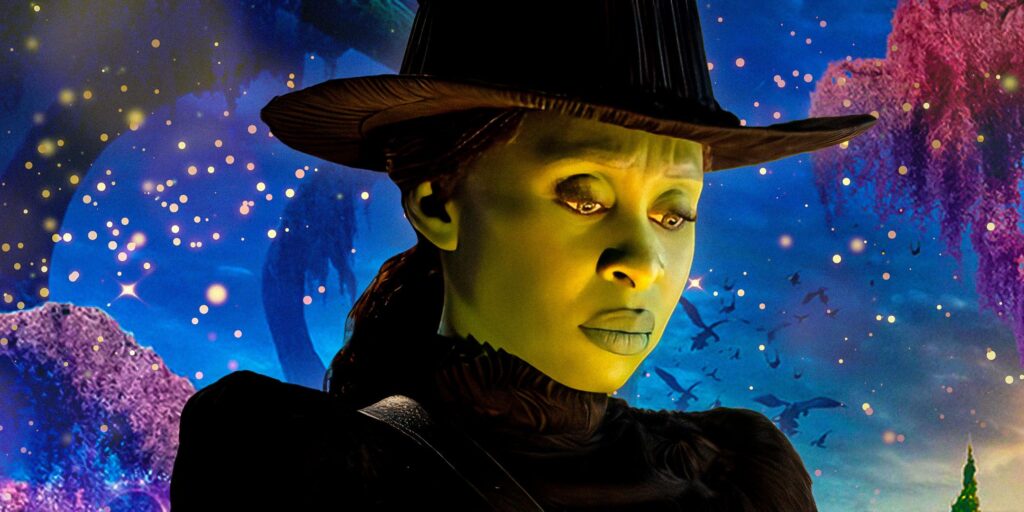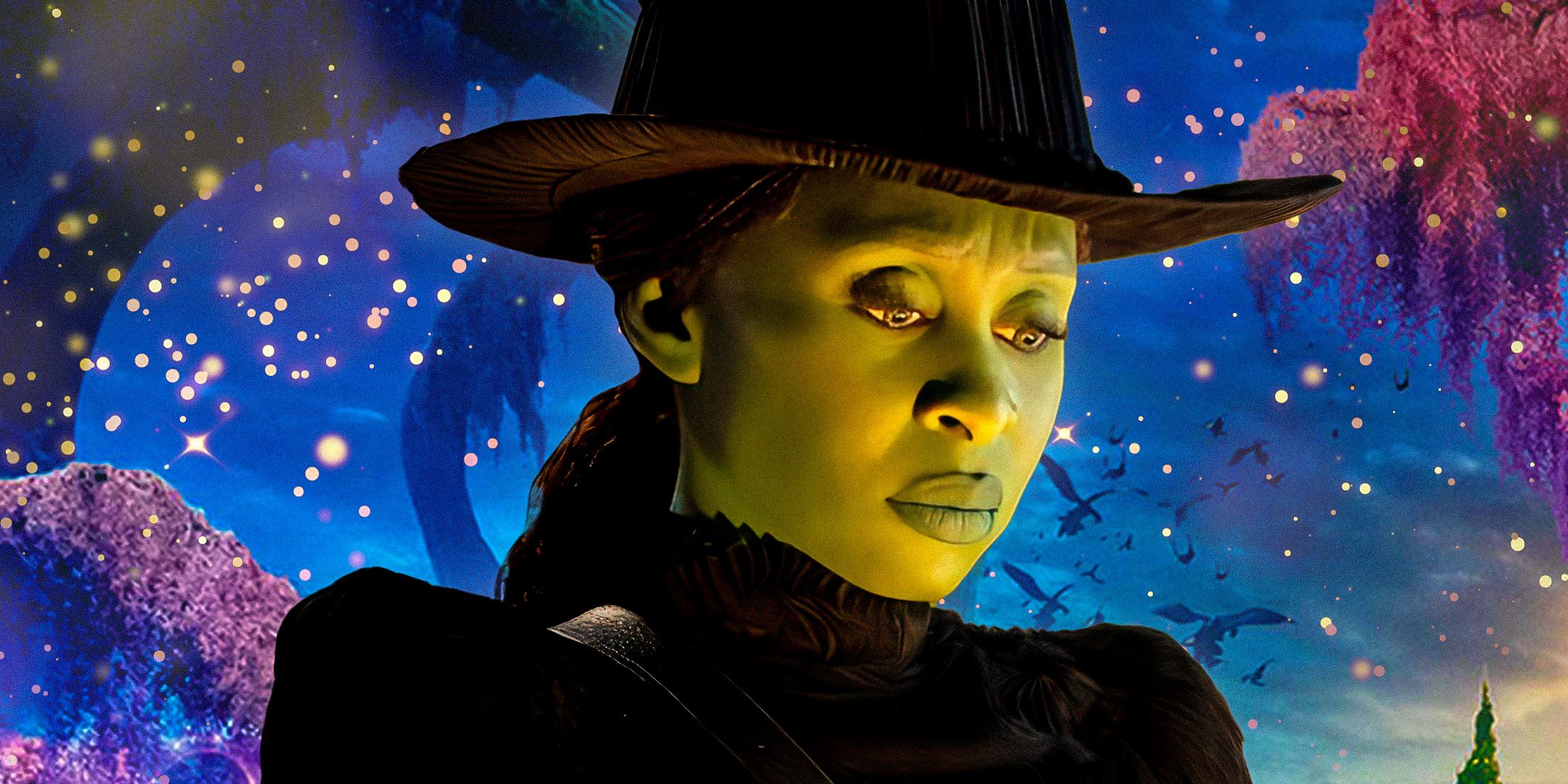
Decoding Defiance: The Historical Context of ‘Defying Gravity’ from Wicked
“Defying Gravity,” the climactic Act One finale of the Broadway sensation Wicked, is more than just a show-stopping number. It’s a powerful anthem of self-discovery, rebellion, and the courage to challenge societal norms. To truly appreciate its impact, we must delve into the historical context that shaped its themes and resonance. This article provides a comprehensive exploration of the historical, social, and political underpinnings that make ‘Defying Gravity’ such a compelling and enduring piece of musical theatre. We’ll examine the influences that contributed to the song’s creation, exploring its connection to broader historical movements and philosophical ideas. By understanding this context, we can unlock a deeper appreciation for the song’s message and its continued relevance today.
Oz Before Glinda: The Roots of Societal Oppression
The Land of Oz, as presented in Wicked, is far from the idyllic paradise portrayed in the classic film. It’s a society riddled with political corruption, propaganda, and systemic oppression. Understanding the historical context of these elements is crucial to grasping the full weight of Elphaba’s defiance. The play draws inspiration from various historical periods and events, reflecting real-world struggles for power and equality.
Echoes of McCarthyism
One of the most striking parallels is the play’s reflection of McCarthyism in the United States during the Cold War. The fear-mongering tactics employed by the Wizard, painting Elphaba as a dangerous “wicked witch,” mirror the anti-communist hysteria that gripped America in the 1950s. Senator Joseph McCarthy’s relentless pursuit of suspected communists, often based on flimsy evidence and unsubstantiated accusations, created a climate of fear and suspicion. Similarly, the Wizard manipulates public opinion through carefully crafted propaganda, demonizing Elphaba and silencing dissent. This historical resonance adds a layer of depth to the play, reminding us of the dangers of unchecked power and the importance of critical thinking.
The Animal Rights Movement
The plight of the Animals in Oz, who are gradually losing their ability to speak and are being relegated to subservient roles, reflects the historical struggle for animal rights. Throughout history, animals have been exploited for human gain, often subjected to inhumane treatment and denied basic rights. Wicked draws attention to this issue by portraying the Animals as sentient beings with their own desires and needs. Elphaba’s commitment to protecting the Animals and fighting against their oppression aligns with the values of the animal rights movement, which seeks to promote the ethical treatment of animals and challenge the anthropocentric view that humans are superior to other species.
Civil Rights and the Fight for Equality
More broadly, the societal injustices depicted in Oz resonate with the historical struggle for civil rights and equality. The oppression of the Animals can be seen as an allegory for the marginalization and discrimination faced by various groups throughout history, including racial minorities, women, and LGBTQ+ individuals. Elphaba’s fight against these injustices embodies the spirit of resistance and the pursuit of a more just and equitable society. Her willingness to challenge the status quo and stand up for what she believes in, even in the face of overwhelming opposition, is an inspiration to those who have fought for equality throughout history.
Melodies of Rebellion: Musical Influences and Thematic Resonance
The music of Wicked, particularly “Defying Gravity,” is a powerful vehicle for conveying the play’s themes of rebellion and self-empowerment. The song’s soaring melodies and defiant lyrics draw inspiration from various musical genres and traditions, reflecting the diverse influences that shaped its creation.
The Power Ballad Tradition
“Defying Gravity” can be seen as a modern example of the power ballad, a genre that emerged in the 1970s and 1980s and often featured anthemic melodies and lyrics about overcoming adversity. Songs like “I Will Survive” by Gloria Gaynor and “The Climb” by Miley Cyrus share a similar spirit of resilience and self-determination. “Defying Gravity” takes this tradition to new heights, using its powerful vocals and soaring instrumentation to create a moment of catharsis and triumph. Elphaba’s declaration that she is “through accepting limits” resonates with the themes of self-empowerment that are central to the power ballad genre.
Opera and Dramatic Storytelling
The musical’s score also draws inspiration from opera, particularly in its use of leitmotifs and dramatic storytelling. Leitmotifs are recurring musical themes that are associated with specific characters or ideas. In Wicked, Elphaba’s theme is often associated with a sense of longing and rebellion, while Glinda’s theme is more lighthearted and optimistic. The use of these leitmotifs helps to deepen our understanding of the characters and their motivations. The dramatic structure of “Defying Gravity,” with its rising action, climax, and resolution, is also reminiscent of operatic arias, which often serve as pivotal moments in the storytelling.
Folk Music and Social Commentary
The play’s themes of social injustice and political corruption also find expression in its musical style. Certain musical passages and lyrical choices evoke the spirit of folk music, a genre that has often been used to express social commentary and protest. Artists like Woody Guthrie and Bob Dylan used their music to address issues of poverty, inequality, and war. Wicked, similarly, uses its music to raise awareness about issues of oppression and discrimination. Elphaba’s songs, in particular, can be seen as a form of protest against the injustices she witnesses in Oz.
Historical Figures and Archetypes: Elphaba as a Revolutionary
Elphaba, the misunderstood protagonist of Wicked, embodies the spirit of historical figures who have challenged the status quo and fought for social change. Her journey from idealistic student to defiant rebel resonates with the stories of revolutionaries and activists throughout history.
Joan of Arc: The Unwavering Belief
Like Joan of Arc, Elphaba is driven by a deep sense of conviction and a belief in something greater than herself. Joan of Arc, a peasant girl who led the French army to victory in the 15th century, was unwavering in her faith and her commitment to her cause. Similarly, Elphaba is driven by her compassion for the Animals and her determination to fight against injustice. Both figures faced persecution and condemnation for their beliefs, but they remained steadfast in their convictions. Elphaba’s willingness to sacrifice her own reputation and well-being for the sake of others echoes the selflessness and courage of Joan of Arc.
Martin Luther King Jr.: Peaceful Resistance
While Elphaba’s methods are sometimes more radical, her ultimate goal is to create a more just and equitable society, much like Martin Luther King Jr. King, a leader of the American Civil Rights Movement, advocated for nonviolent resistance to racial segregation and discrimination. Elphaba, similarly, seeks to challenge the oppressive regime in Oz and create a world where all beings are treated with respect and dignity. While their approaches may differ, both figures are driven by a deep commitment to social justice and a belief in the power of peaceful resistance. Elphaba’s efforts to educate others about the plight of the Animals and to expose the Wizard’s lies can be seen as a form of nonviolent protest.
The Suffragettes: Fighting for a Voice
The struggle for women’s suffrage provides another historical lens through which to view Elphaba’s defiance. The suffragettes, who fought for women’s right to vote in the late 19th and early 20th centuries, faced significant opposition and ridicule. Similarly, Elphaba is ostracized and demonized for her unconventional views and her refusal to conform to societal expectations. Both the suffragettes and Elphaba challenged the prevailing power structures and fought for a more inclusive and democratic society. Elphaba’s refusal to be silenced and her determination to speak truth to power resonates with the spirit of the suffragette movement.
Defying Gravity: A Modern Anthem of Empowerment
“Defying Gravity” has become more than just a song from a Broadway musical; it has evolved into a modern anthem of empowerment, resonating with audiences of all ages and backgrounds. Its message of self-discovery, rebellion, and the courage to challenge societal norms has struck a chord with countless individuals who have felt marginalized, misunderstood, or oppressed. The song’s enduring popularity speaks to its universal themes and its ability to inspire hope and resilience.
The LGBTQ+ Community: Finding Acceptance
For many members of the LGBTQ+ community, “Defying Gravity” is a powerful expression of self-acceptance and the courage to live authentically. The song’s message of embracing one’s true identity and refusing to conform to societal expectations resonates deeply with those who have struggled to find acceptance and belonging. Elphaba’s journey of self-discovery and her willingness to defy the norms of Oz can be seen as a metaphor for the LGBTQ+ community’s fight for equality and recognition. The song’s message of hope and resilience has provided solace and inspiration to countless individuals who have faced discrimination and prejudice.
Individuals with Disabilities: Overcoming Obstacles
The song’s message of overcoming obstacles and achieving one’s full potential also resonates with individuals with disabilities. Elphaba’s physical difference and her initial feelings of inadequacy mirror the experiences of many people with disabilities who have faced societal barriers and discrimination. The song’s message of self-empowerment and the belief that anything is possible, regardless of one’s limitations, has inspired countless individuals to overcome challenges and achieve their goals. Elphaba’s journey of self-discovery and her ultimate triumph over adversity serves as a powerful reminder that anything is possible with determination and perseverance.
Anyone Feeling Misunderstood: Embracing Uniqueness
Ultimately, “Defying Gravity” speaks to anyone who has ever felt misunderstood, marginalized, or different. The song’s message of embracing one’s uniqueness and refusing to conform to societal expectations is a powerful reminder that we all have the potential to make a difference in the world. Elphaba’s journey of self-discovery and her ultimate triumph over adversity is an inspiration to us all. The song’s enduring popularity is a testament to its universal themes and its ability to inspire hope and resilience in the face of adversity. It encourages us to embrace our individuality, challenge the status quo, and strive for a better world.
The Enduring Legacy of Defiance
“Defying Gravity” continues to inspire audiences worldwide with its powerful message of self-empowerment, rebellion, and the courage to challenge societal norms. By understanding the historical context that shaped its themes and resonance, we can gain a deeper appreciation for the song’s enduring legacy and its continued relevance today. The song serves as a reminder that even in the face of overwhelming adversity, we have the power to make a difference in the world. Share your thoughts and experiences with ‘Defying Gravity’ in the comments below. How has this song resonated with you, and what does it mean to you in the context of your own life and experiences? We encourage you to explore further the themes and historical events discussed in this article to deepen your understanding of this iconic song and its enduring message.

